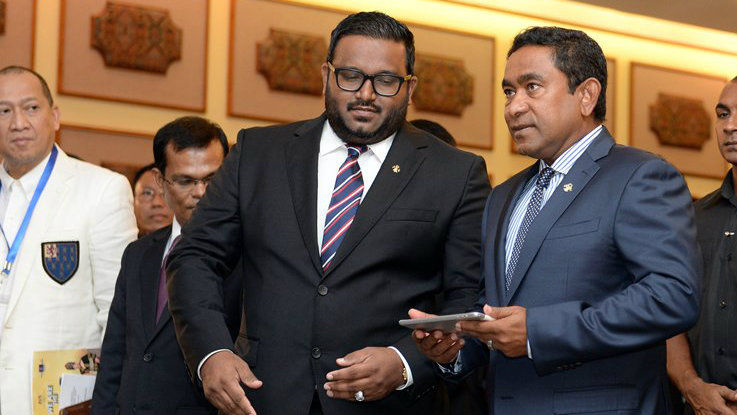Correcting a wrong with a wrong
After a year of multiple politically motivated trials, domestic and international observers are concerned of continuing due process violations in the Maldives, especially in that of the inquiry against former Vice President Ahmed Adeeb. Correcting a wrong with a wrong will only exacerbate the erosion of rule of law in the country.

10 Nov 2015, 09:00
The Maldives police, casting a wide net in the probe into the September 28 explosion on President Abdulla Yameen’s speedboat, are now taking up crimes they had paid very little attention to before; corruption within the tourism sector, bribery within the police force, and the involvement of top officials in organised crime, all taken as fact on the streets and tea shops of Malé, long before the boat blast.
At the centre of the inquiry are recently impeached Vice President Ahmed Adeeb and the state-owned tourism promotion firm, the Maldives Marketing and Public Relations Corporation (MMPRC).
After a year of multiple politically motivated trials, domestic and international observers are concerned over continuing due process violations in the Maldives, now in the inquiry against Adeeb. Correcting a wrong with a wrong will only exacerbate the erosion of rule of law in the country, they say.
Adeeb, arrested on October 24, and impeached in a sudden vote on November 5, is facing prosecution for attempted murder, plotting a coup, criminal property damage, bribery and criminal conspiracy.
Become a member
Get full access to our archive and personalise your experience.
Already a member?
Discussion
No comments yet. Be the first to share your thoughts!
No comments yet. Be the first to join the conversation!
Join the Conversation
Sign in to share your thoughts under an alias and take part in the discussion. Independent journalism thrives on open, respectful debate — your voice matters.




